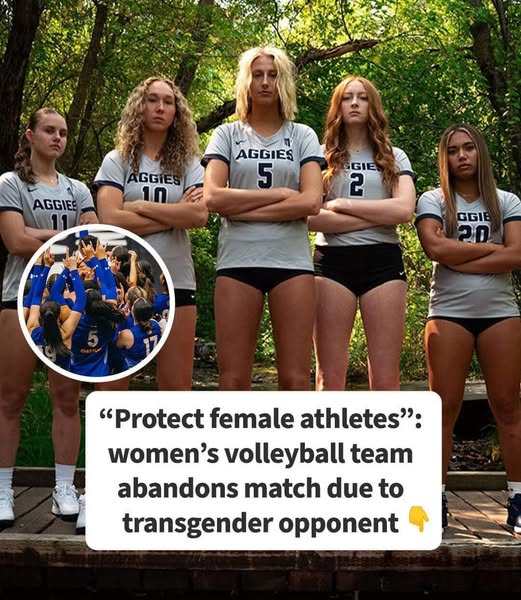
Utah State forgoes a volleyball match with San Jose State over a trans athlete, sparking debate about inclusivity, and privacy rights.
Utah State University was scheduled to face San Jose State in a volleyball match but withdrew due to the presence of a trans athlete on the opposing team.
The participation of transgender athletes has been a polarizing issue. Supporters advocate for inclusivity, while critics argue that trans athletes may have a physical advantage. This debate extended to the 2024 Olympics, which saw boycotts and heated discussions. Domestically, several U.S. universities, including Utah State, have pulled out of matches involving San Jose State’s trans athlete.

Utah State recently joined three other universities in forfeiting matches against San Jose State. In a statement, they confirmed their decision to forgo the October 23 game but provided limited explanation for the move.
None of the forfeiting universities explicitly connected their decisions to the transgender athlete. However, the University of Wyoming hinted at lengthy internal discussions influencing their choice. Utah State noted that it would comply with Mountain West Conference policies regarding the forfeiture’s official record.
Michelle Smith McDonald, spokesperson for San Jose State, emphasized privacy rights under the Family Educational Rights and Privacy Act (FERPA). She expressed disappointment over the forfeitures, stating:

“Our SJSU student-athletes, who comply fully with NCAA and Mountain West rules, are being unfairly denied opportunities to compete. We remain committed to providing an inclusive, fair, and respectful environment for all student-athletes.”
This wave of forfeitures reportedly stemmed from rumors published by a conservative website. An anonymous parent interviewed by the site claimed there were unverified reports of a trans athlete on San Jose State’s team, sparking the controversy.
The NCAA is currently defending a lawsuit brought by women athletes, including Riley Gaines and Brooke Slusser, who allege Title IX violations. Slusser claims a trans teammate admitted their gender identity, which she believes led to emotional and physical distress.
The lawsuit accuses the NCAA of failing to ensure fair competition and adequate safeguards for all athletes. The NCAA has defended its policies, citing significant investments in women’s sports and a commitment to fairness in competition.
The controversy highlights another critical issue: the trans athlete’s gender identity was leaked without consent. Equality California’s executive director, Tony Hoang, criticized the forfeitures, stating they reflect broader political attacks on the LGBTQ+ community. He emphasized that such actions harm all students involved.
